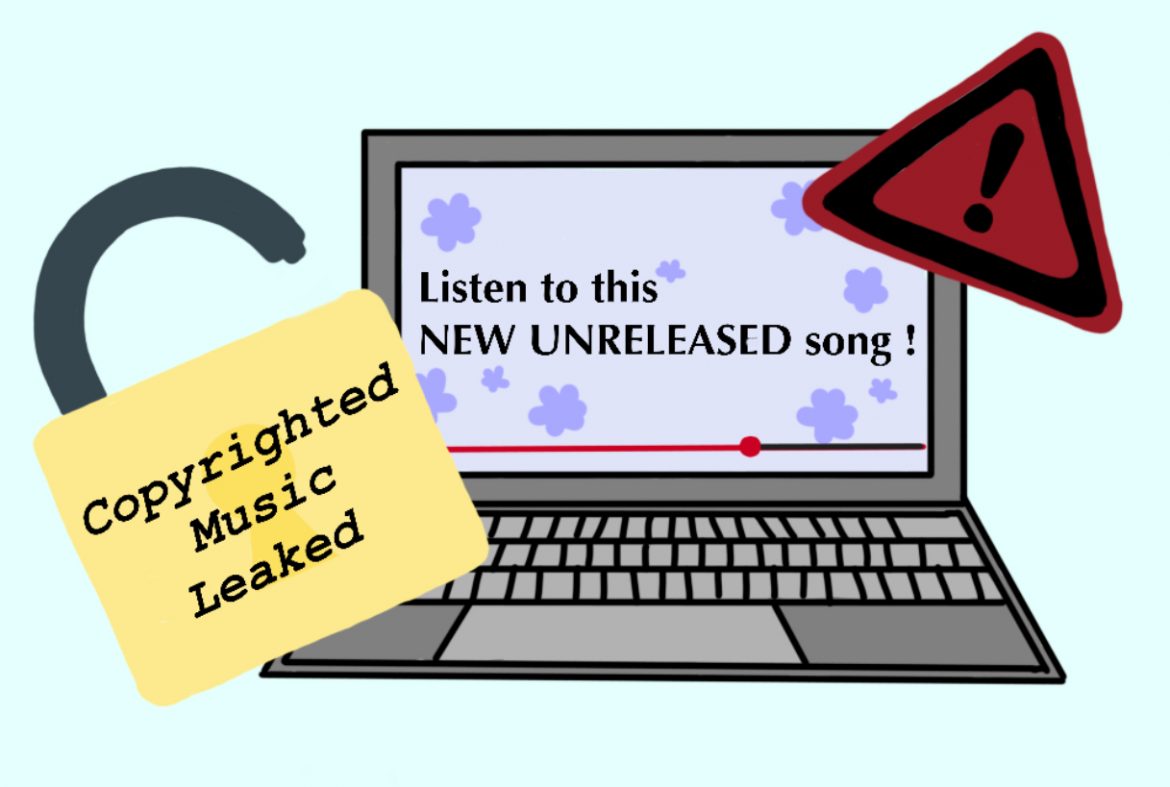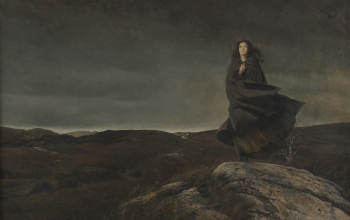Illustration Credit: Nisa Notta
An ethical evaluation of the piracy of unreleased music
Lauren Wills, Staff Writer
One can argue that leaking music is the act of a utilitarian, that leaking music will inevitably benefit the greatest number of people, only at the expense of the artist and their team. Despite this, is it worth it to leak someone else’s project just to enjoy it a few weeks earlier?
What is Music Piracy?
Music piracy entails the unauthorized and otherwise illegal use or reproduction of an artist’s music, and it results in the significant loss of annual profits for the music industry. With music piracy, we see the breach of property and copyright law through the stealing of unpublished work along with theft of licensed music. Aside from the legality of music piracy, the ethics surrounding it are yet another problem.
This problem has become a thorn in the music recording industry’s side. The 2023 Piracy by Industry Data Review conducted by MUSO has demonstrated that the music industry has seen a sharp increase in the pirating of music of late, mostly via downloads from illegal websites. Prior to this, music piracy had seen a decline thanks to the use of streaming platforms like Spotify.
The Ethics Behind Leaked Music
The Utilitarian Argument
The theory of utilitarianism offers the notion that one must perform the action that will provide the maximum amount of happiness and pleasure to the maximum number of people. The music piracy industry would likely argue that it follows utilitarianism when leaking unreleased music to the public, because it creates excitement, enjoyment, and even pleasure for people. When we look toward mainstream artists, specifically international superstars like Ariana Grande, it is undeniable that they have large fanbases who enjoy their music.
Although Ariana Grande has around 380 million followers on Instagram, this figure offers only a glimpse of how many fans she truly has. We must then consider both the younger and older generation who don’t have social media. Based on the theory of utilitarianism, creating happiness for this amount of people arguably weighs more than the pain that the artist and her team may experience. Therefore, through the point of view of a utilitarian, music piracy is ethically and morally permissible.
The Deontological Objection
But is this really the case? Through a non-consequentialist view — or perhaps a deontological perspective — the action of stealing someone’s art and sharing it without their permission is wrong. It embodies the principle that the action of stealing is wrong, regardless of the motivations behind it or the possible negative or positive consequences. It takes away artists’ full artistic control over their art because it changes the way that it is presented to the world. This can lead to the possibility of unsolicited alterations of songs and albums, the potential for modification through artificial intelligence, and much more.
Returning to the example of Ariana Grande, we have recently seen that one of her songs, “Fantasize,” was leaked in 2023. The song was uploaded to Spotify and it did not take long for it to reach about 70,000 streams worldwide. The song also went viral on TikTok and even flooded the platform with videos of Grande’s fans dancing to the song or displaying its lyrics, all posts captioned with the hashtag #fantasize. Surprisingly, the song continues to make waves through social media despite Grande speaking out. The singer tweeted that she felt that the situation was “disheartening” and planned to repurpose the song for her planned seventh studio album, Eternal Sunshine, which was recently released.
Therefore, not only do fans who leak music disrespect their favourite artists, but they also tamper with the artistic approach, control, freedom, and expression that come with producing a song or album and its release. Leaked music is yet another variant of theft and is therefore ethically and morally impermissible.




